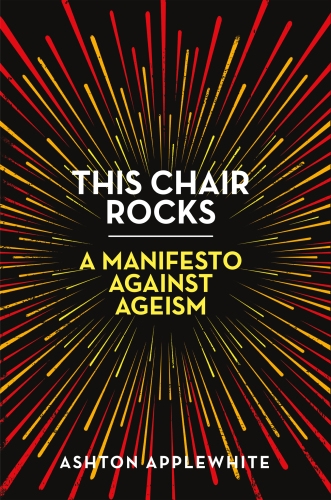
This Chair Rocks
A Manifesto Against Ageism
کتاب های مرتبط
- اطلاعات
- نقد و بررسی
- دیدگاه کاربران
نقد و بررسی

October 1, 2018
Activist and TED speaker Applewhite leaps from her eponymous blog to a full-scale work exploring the history and consequences of ageism, the burdens of ageist stereotypes from boardroom to bedroom, and what an age-friendly society might look like. Big promotion.
Copyright 2018 Library Journal, LLC Used with permission.

December 1, 2018
A satisfying exploration of how growing older offers significant, rich new experiences.Applewhite (Cutting Loose: Why Women Who End Their Marriages Do So Well, 1997, etc.), cited by Forbes as one of Forty Women to Watch Over 40, in 2017, argues convincingly that ageism--like racism and sexism--is a form of demeaning prejudice, inaccurately generalizing the experiences of older adults and promoting the idea that old age is repulsive and lonely. Drawing on abundant studies and interviews, she exhorts readers "to wake up to the ageism in and around us, embrace a more nuanced and accurate view of growing older, cheer up, and push back." Stereotypes of old age--geezer, biddy, codger, etc.--convey negativity. "Those stereotypes," she writes, "are ours to reject or subvert on the way to more compelling and accurate aspirational identities." But rejecting such stereotypes should not lead to strategies such as dying hair, applying creams and potions, and taking pills that promise "to erase the trace of time." Applewhite debunks many prevalent assumptions about aging, including failing memory, weakened physical ability, and overall lack of attractiveness and competence. She notes that forgetfulness "is not Alzheimer's, or dementia, or even necessarily a sign of cognitive impairment"; rates of dementia are falling, she has discovered, even as the population is aging. Moreover, especially "in the emotional realm, older brains are more resilient," better able to deal with negative emotions and change. Everyone ages at a different rate, she writes: "There is no line in the sand, no crossover between young and old after which it's all downhill." Viewing 60 or 70--or even 40--as the beginning of the end necessarily has an impact on self-image and outlook. Among the author's suggestions for creating "an all-age-friendly world" are creating increased opportunities for older people to contribute "socially, civically, and economically" to the community; improving research into the biology of aging and the social implications of longevity; and expanding the training of geriatric medical practitioners as well as resources for older learners and workers.An upbeat, empathetic, and practical guide to becoming "an old person in training."
COPYRIGHT(2018) Kirkus Reviews, ALL RIGHTS RESERVED.

February 15, 2019
In a youth-obsessed culture, growing old is the ultimate indignity. One is made to feel invisible, with nothing left to contribute. Like other such pejorative isms that negatively define society, ageism joins racism and gender biases as a way to divide and marginalize demographic groups. But what criteria are used to define someone as old? While ageism may be narrowly defined as discrimination and stereotyping on the basis of a person's age, this prejudice goes beyond mere chronology to encompass mental acuity, physical agility, and even sexual attractiveness. Relegated to the sidelines, older members of society rail against being prematurely set out to pasture. How might older people reverse this diminution of their perceived worth? A singular activist for changing prejudicial attitudes, Applewhite offers a fierce and funny yet practical and thoughtful manifesto on how such negativity can be combated on individual and societal levels. Offering much food for thought and abundant realistic steps to engender positive change, Applewhite's guide is an essential tool for enjoying healthy and happy aging.(Reprinted with permission of Booklist, copyright 2019, American Library Association.)

























دیدگاه کاربران